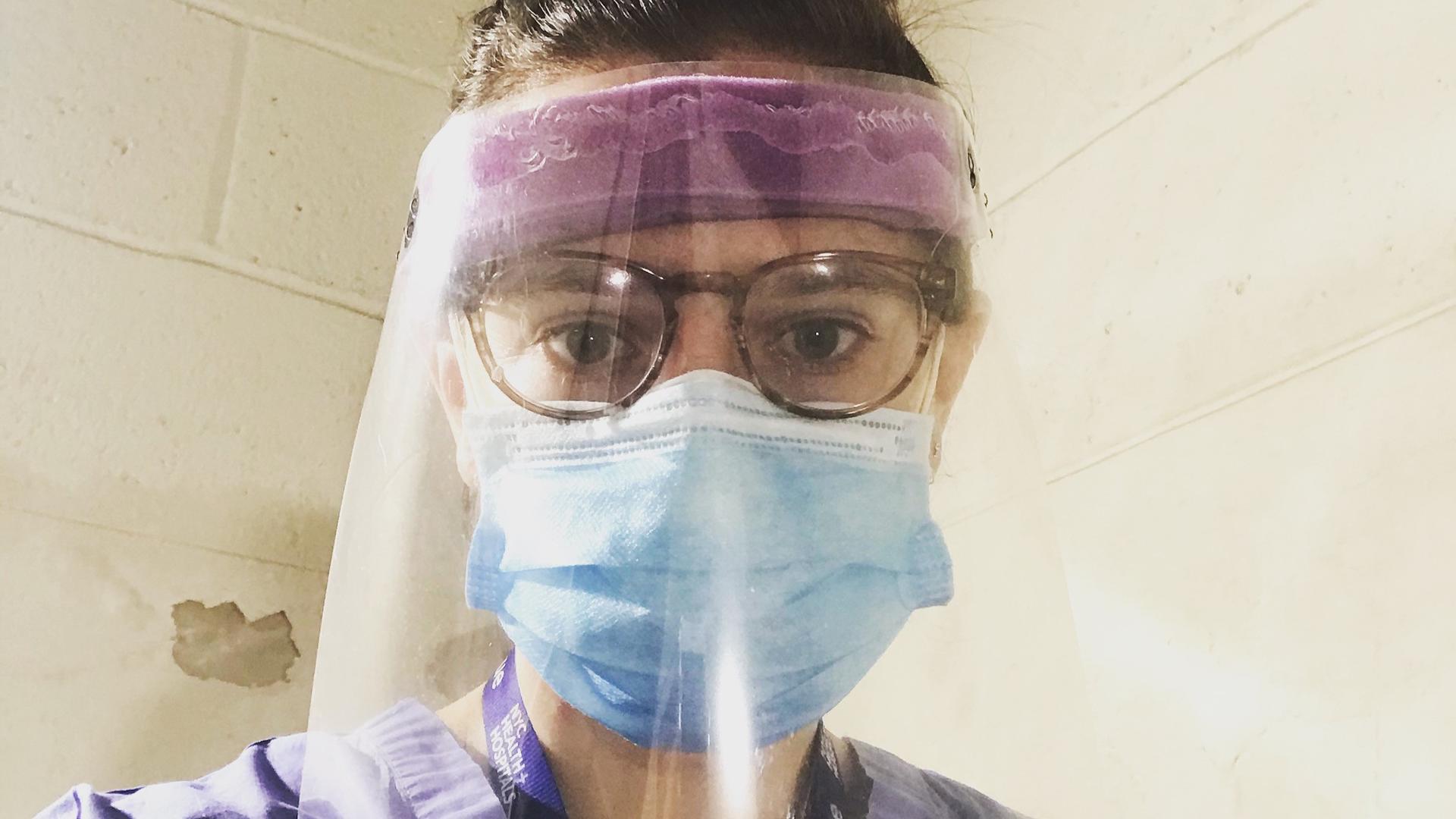
This is part of a series of articles about how Juilliard community members are engaged in helping the world in these unprecedented times
By Megan Griffin
I was scheduled to graduate from medical school on May 20, and the ceremony would have brought my New York journey full circle, as it was set to take place in Alice Tully Hall. I moved to NYC when I was 18 to study viola at Juilliard, arriving here with just a few suitcases, and somehow stayed for 14 years. Lincoln Center still feels like home, even after stints in Brooklyn and the Upper East Side and a career change that forces me to dig deep to remember things like Schenkerian analysis or how to play Don Juan. I was excited to return “home” for graduation, back to the stage I’d performed on countless times and walked across to receive my music degree, and I was preparing to say a nostalgic farewell to both Juilliard and New York City.
Two months before graduation, in late March, I matched into my top residency choice of internal medicine at University of Washington, confirming that I’d be moving out of NYC. While frantically Googling “how to move across the country during a pandemic,” I got an email from NYU asking for volunteers to graduate early and begin working as physicians in order to assist with the COVID pandemic. They had already recruited doctors specializing in surgery, psychiatry, dermatology, etc. to work on the medicine floors and in the intensive care unit, but the hospital system was working at a capacity unforeseen and they still needed help. NYU offered early graduation to everyone who had completed their requirements and was just waiting to graduate—I submitted my final research project in March and had been planning to spend April doing some well-deserved spring skiing in Colorado with friends and family before the pandemic hit. But when the email came, I knew my answer before I even finished reading the details. With the world shut down and people forced to stay home, I was being given the chance to help, and in my mind it was not an extraordinary sacrifice. As my music friends were having concert after concert canceled, being let go from teaching jobs they’ve had for years, and wondering when the artistic world might recover from this, my skills as a newly minted physician were suddenly needed. On April 3, I graduated from medical school staring at my computer screen and fumbling through the Hippocratic Oath, as 50 of us fought computer microphone feedback and slow internet connections to commit our lives to the medical profession.
Before graduating, I worked at Bellevue Hospital, and the support I got from my friends was overwhelming—check-ins from friends, videos of home performances of “Eroica,” and a text chain with personalized 7pm cheers when they found out I couldn’t hear the nightly celebration from inside the hospital. I worked there for six weeks before moving to Seattle, where I am beginning my residency in a new city, at new hospitals, yet still in the midst of a pandemic. I feel lucky that in this moment, I am qualified to have been given a job that is considered crucial. Currently the best way for others to help is to stay home and leave the concert halls empty, but I believe the arts will be the next step in the healing from this pandemic. While I know I am biased, I already see the need—when a nurse at the hospital passed away from COVID, the request sent out was not for doctors but musicians who would be able to perform at a memorial ceremony for the staff. Even for myself, as I cue up medical podcasts to listen to on my walk to work, I often switch to music after a block or two. I don’t think of myself as a hero—I am doing what I’ve been studying and training for and finally am prepared to do, even though it feels scary at (many) times. But I am looking forward to when we can fill the concert halls again, when I can introduce new friends to the symphony, when I can read through chamber music and laugh about my inability to play above third position. To the time I can again support the musicians who will heroically help everyone heal.
Megan Griffin (BM ’10, MM ’11, viola) played in the New World Symphony and what is now Ensemble Connect for a few years before pursuing another longtime dream by enrolling in medical school at NYU